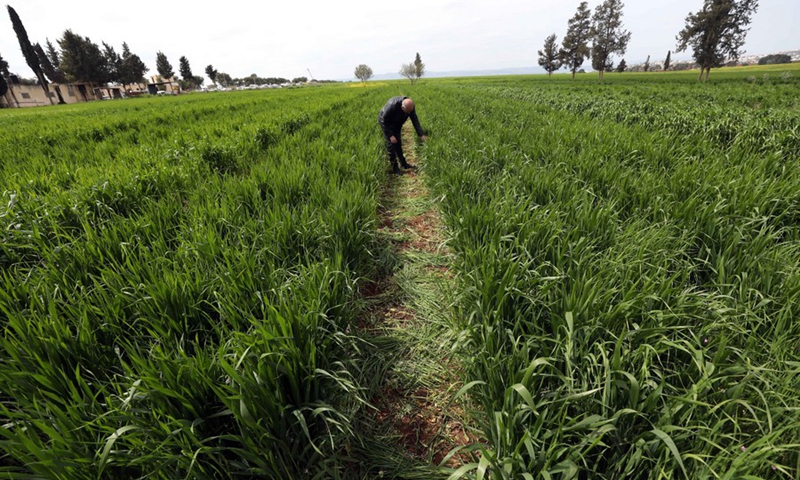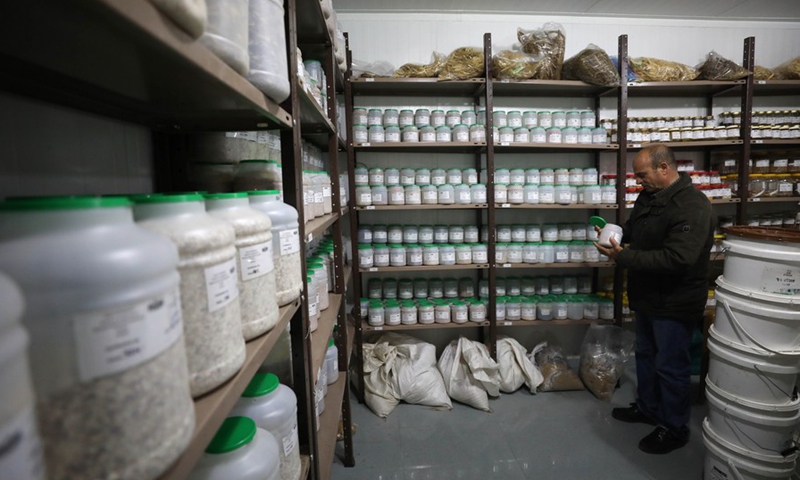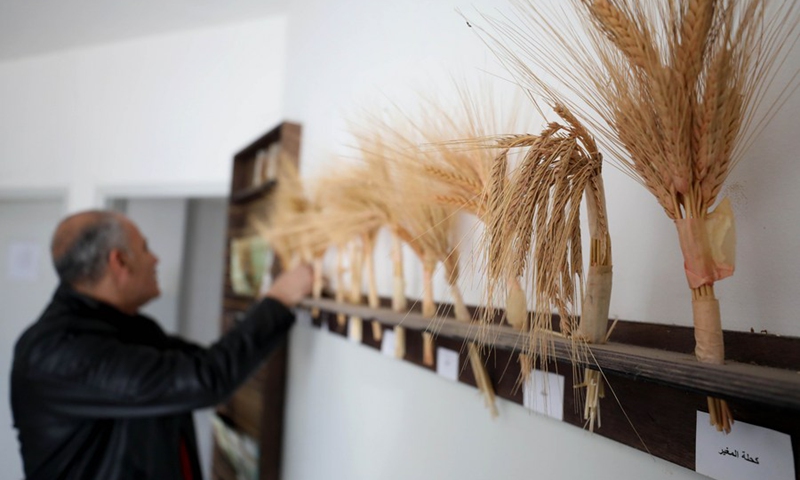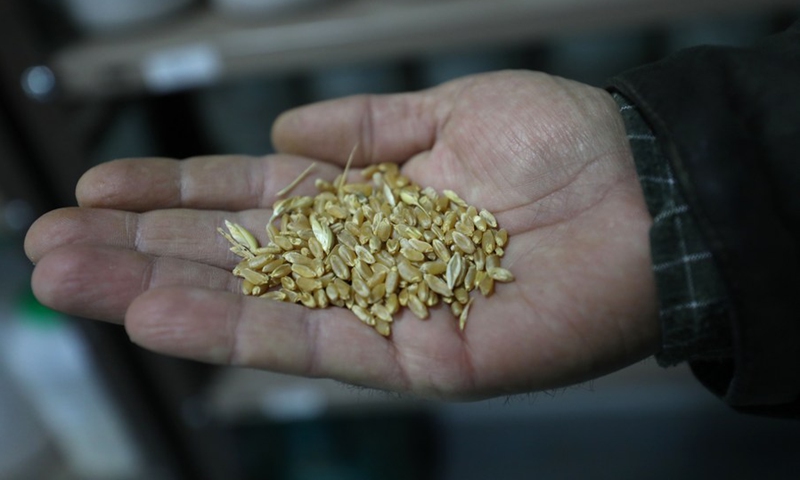
A man checked field crops in the Beit Qad Experimental Station in the West Bank city of Jenin on March 30, 2022.(Photo: Xinhua)

An agricultural engineer worked at the West Bank-based Seed Bank in the city of Jenin on March 30, 2022.(Photo: Xinhua)

An agricultural engineer works at the West Bank-based Seed Bank in the city of Jenin on March 30, 2022.(Photo: Xinhua)

An agricultural engineer held a handful of crops at the West Bank-based Seed Bank in the city of Jenin on March 30, 2022.(Photo: Xinhua)
Facing a mounting wheat crisis, a government-run Seed Bank in West Bank has been racing against the clock to provide hundreds of local farmers with tons of improved wheat seeds in hope of greater yields.
The Palestinian territories have been suffering from a shortage of supply and soaring local wheat and flour prices, both the main source of imports, since the outbreak of Russia-Ukraine conflict two months ago.
According to the Ministry of Agriculture, the Palestinians depend entirely on the imports of wheat both in terms of food and animal feed, with 35,000 to 40,000 tons of imports annually to cover the demand of each.
"Every country in the world has its own (food) stock. But the Palestinians do not have that 'luxury'," Sameh Jarrar, the director of the Plant Genetic Resources Department in the Seed Bank at the Ministry of Agriculture, told Xinhua.
Jarrar added that Palestinians have been making every effort to garner sufficient local alternatives to food imports in case the conflict would not end soon.
The Seed Bank was established by the ministry in the 1980s under the supervision of a local advocacy group, where a total of 2,000 varieties of wild and domestic seeds are stored to preserve the genetic resources of indigenous plants in the Palestinian territories against the risk of extinction in climate change.
"We rely on two sources to store these seeds: the first is internal, and it is usually collected by the original wheat seeds through a work team affiliated with the ministry, and an external source obtained from international and Arab institutions," Jarrar said.
What distinguishes those improved varieties in the bank is that they can better withstand the varying climates and can germinate as quickly as possible, which would help narrow the shortage gaps, he added.
Researchers would work with local farmers to grow the varieties in test fields on promoting yields, climate resilience, and genetic diversity, according to Mohammed Abed, director of the 750,00-hectare Beit Qad Experimental Station for field crops.
Wheat, barley, and legumes are the main produce of the government-run test fields.
"We carry out the preservation by planting the varieties annually, multiplying them and renewing the bank from time to time," Abed said.
"We annually provide some 50 tons of improved seeds to farmers, who would cultivate them and put the yield on sale in local markets," he said.
However, things do not seem easy primarily because "Israel controls much of the arable Palestinian lands in the West Bank and has imposed restrictions on Palestinian farmers' access to the lands," according to Ahmed Rabaia, a local agricultural expert.
"In 2010, there were about 25,000 dunams (2,500 hectares) producing about 45,000 tons, which constituted between 10 to 15 percent of consumption. Due to Israeli violations, we have only 18,000 dunams left and those produce only about 30,000 tons, and this amount constitutes between five to six percent of consumption," Rabaia added.
"At a time when we do not know when the Russia-Ukraine conflict will end, it is necessary to search for other sources such as Egypt, Canada, and Australia to reduce the risks that we may be exposed to in the future in order to obtain wheat at low prices that do not affect the Palestinian consumers," he explained.
